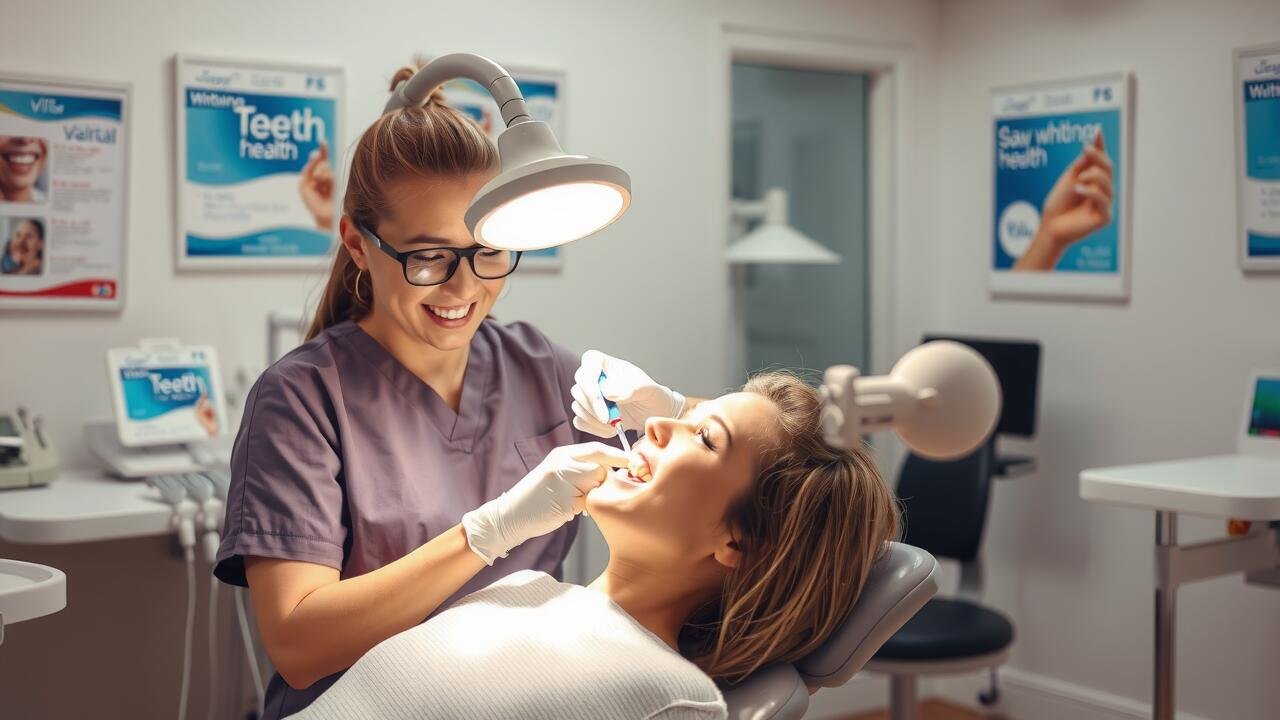
Pre-Treatment Considerations
Before undergoing any whitening treatment, it is essential to assess your dental health. Individuals with gum disease, cavities, or other oral health issues should address these problems first. A consultation with a dentist in Provo, Utah, can provide clarity on whether you are a suitable candidate for teeth whitening. Home kits may not be suitable for everyone, especially those with sensitive teeth, so professional advice is vital.
Many people are curious about the potential side effects associated with teeth whitening. Discomfort or sensitivity is common, particularly for those with pre-existing sensitivity issues. It’s beneficial to discuss these concerns with a local professional to explore options tailored to your needs. If you are in Provo, Utah, a dental expert can explain the various whitening techniques and help you make an informed decision.
Preparing Your Teeth for Whitening
Before undergoing a teeth whitening procedure, it is essential to prepare your teeth properly. A dental examination is advisable to ensure there are no underlying issues such as cavities or gum disease. These conditions can cause discomfort during the whitening process. A professional cleaning may also be beneficial, as removing plaque and tartar will enhance the effectiveness of the treatment. It’s best to avoid whitening if you have sensitive teeth, as this can lead to increased discomfort.
Home care is important leading up to your whitening appointment. Maintain a good oral hygiene routine that includes brushing twice daily and flossing regularly. This practice helps to create an optimal environment for the whitening agents to work effectively. Additionally, you might want to explore reputable providers in your area, such as those offering Teeth Whitening Sandy, Utah. Research different methods, as some options may be more suitable for your specific dental needs and sensitivity levels.
Post-Treatment Care
After undergoing a teeth whitening procedure, proper post-treatment care is essential to maintain the results and minimize any discomfort. It is advisable to avoid consuming highly pigmented foods and beverages such as coffee, red wine, and berries for at least 48 hours after treatment. These substances can stain freshly whitened teeth, diminishing the effects of the procedure. Additionally, maintaining good oral hygiene by brushing and flossing regularly will aid in keeping your teeth bright and healthy.
If you experience sensitivity following the treatment, consider using toothpaste designed for sensitive teeth. This can help alleviate discomfort while still ensuring your dental health remains a priority. Consulting with a professional at a local practice like Teeth Whitening Sandy, Utah, can provide personalized recommendations and guidance tailored to your needs. Staying hydrated and using a straw when drinking can also help reduce exposure to staining agents during your recovery period.
Tips for Reducing Sensitivity
If you’re concerned about sensitivity after a teeth whitening procedure, there are several strategies you can employ. Start by using desensitizing toothpaste a few weeks prior to your appointment. This type of toothpaste is formulated to help reduce nerve sensitivity, making the whitening process more comfortable. It’s also a good idea to avoid extremely hot or cold foods around the time of the treatment. This simple adjustment can help minimize any discomfort that may arise.
After your teeth have been whitened, consider using a fluoride rinse or gel. These products can help strengthen your enamel and alleviate any lingering sensitivity. Staying hydrated and rinsing with water after consuming acidic or sugary foods can also support your teeth’s health. If you’re looking for a local option, you might want to explore connections with dental professionals offering teeth whitening in Provo, Utah, who can provide personalized recommendations for managing sensitivity effectively.
Alternatives to Traditional Teeth Whitening
Many people seek alternatives to traditional teeth whitening methods for various reasons, including sensitivity concerns and a desire for natural options. One popular choice is the use of at-home whitening kits that utilize lower concentrations of bleaching agents. These kits often come in the form of strips or trays and may be more suitable for individuals with sensitive teeth. Another alternative is professional whitening services available in dental clinics. Services like those offered in Teeth Whitening West Valley City, Utah, provide tailored treatments that can address specific dental needs while minimizing discomfort.
Natural remedies have also gained popularity as a gentler option for teeth whitening. Ingredients like baking soda, activated charcoal, and hydrogen peroxide are often touted for their whitening capabilities. These methods, however, vary significantly in effectiveness and safety. Users should be cautious and consult with dental professionals to ensure that these remedies won’t harm enamel or lead to other issues. Many individuals find that combining these alternatives with proper oral hygiene practices yields the best results while avoiding the pain associated with more aggressive whitening treatments.
Natural Remedies and Their Effectiveness
Natural remedies for teeth whitening have gained popularity among those seeking a less invasive approach. Common methods include baking soda, activated charcoal, and hydrogen peroxide. These ingredients contain properties that can help remove surface stains. However, these remedies may not deliver the same level of effectiveness as professional treatments. The results can vary widely based on factors such as the individual’s dental health and the extent of the stains.
In Teeth Whitening Layton, Utah, many people explore these alternatives as a way to achieve a brighter smile. While some may experience minor improvements, it’s essential to be cautious of long-term effects on enamel and gum health. Regular dental check-ups can guide individuals in choosing the safest and most effective whitening solutions available. Being informed is crucial when deciding between natural remedies and professional treatments.
FAQS
Is teeth whitening a painful procedure?
Most people experience minimal to no pain during teeth whitening, though some may feel temporary sensitivity.
Can I prevent discomfort during teeth whitening?
Yes, you can reduce sensitivity by following pre-treatment guidelines and using desensitizing toothpaste before the procedure.
How long does sensitivity last after teeth whitening?
Sensitivity can last from a few hours to a couple of days post-treatment, but it typically resolves on its own.
Are there alternatives to professional teeth whitening that are less painful?
Yes, there are natural remedies and over-the-counter whitening products that may be less intense and cause less sensitivity.
Should I consult my dentist before whitening my teeth if I’m concerned about pain?
Absolutely. Discussing your concerns with your dentist can help determine the best approach and ensure your comfort during the process.


